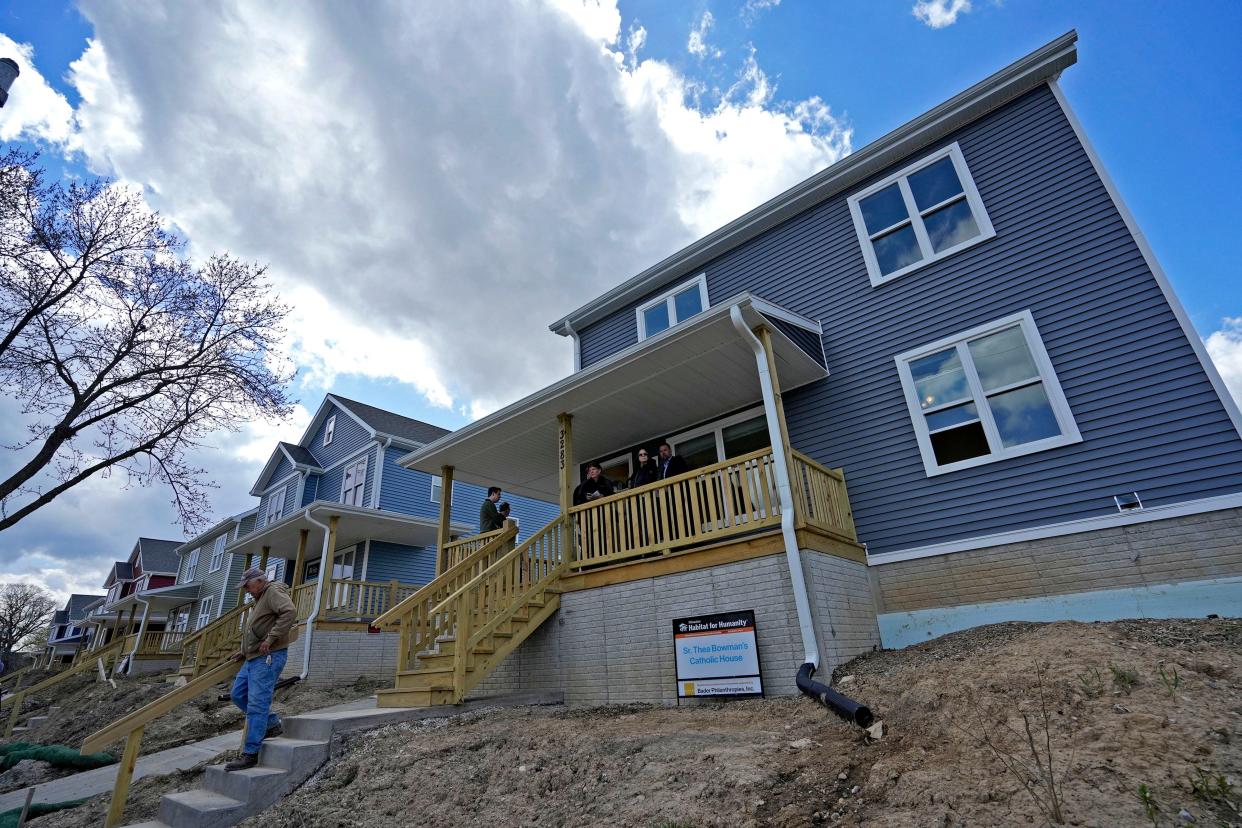Racism is embedded in Milwaukee's rules for building new housing. Here's how we fix that.

- Oops!Something went wrong.Please try again later.
I am a firm believer that homeownership is a catalyst for dismantling systemic racism. Through collective impact, we are finally seeing an increase in homeownership for people of color for the first time in decades. That’s the good news. The bad news? Milwaukee continues to be one of the most segregated cities in the country.
We have the highest housing cost increases in the Midwest. And we have suffered the displacement of thousands of existing and new homeowners by the actions of predatory investors. We need policy change to create more rental and homeownership inventory.
"Growing MKE" can be our generation’s step in the march towards fair housing. Put simply, it is an initiative recommending updates to Milwaukee’s zoning code to permit additional styles of housing in all neighborhoods.
New Milwaukee zoning proposal tackles racial equity issues
The policy changes proposed in Growing MKE take a giant step forward on three issues that need to be resolved, including:
Inventory. This is a racial equity issue because when inventory is restricted, housing prices go up and people of color bear the brunt of that cost burden.
Neighborhood choice. Historical zoning laws throughout the 20th century restricted neighborhood choice by limiting certain types of housing in certain neighborhoods. It is going to take new updates to the zoning code to honor people of color’s choice to live in the neighborhoods they choose.
Displacement. If high demand neighborhoods are not allowed to grow upwards, they will grow outwards and displace people of color from their own neighborhoods.
The march towards fair housing is unfinished. The first step in our city was championed in the 1950s by Milwaukee heroes Vel Phillips, Father Groppi and their allies that fought to eliminate racially restrictive covenants. Phillips faced strong opposition from her white, male peers in the Milwaukee City Council who would not pass the local fair housing laws she championed. The bravery of Phillips and her allies pressured the federal government to respond and pass the Fair Housing Act in 1968 to prohibit discrimination in housing.
My abortion opened my eyes. Here's what I learned after my own experience.
Milwaukee was not alone. In fact, across the country in the 1950s, cities moved from racially explicit restrictions to zoning restrictions. These restrictions ensured that there were no homes to rent or entry level homes to buy in predominantly white neighborhoods. The 1950s Milwaukee City Council passed exclusionary rules that prevented the construction of duplexes and other homes attainable by most families of color. These discriminatory rules remain on the books today.
This plan represents next steps in march for fair housing
Fortunately, allies in Milwaukee have been preparing the next step in the march towards fair housing.
Growing MKE is a policy change that will eliminate most of the exclusionary zoning provisions of the 1950s. This plan will allow for more homeownership and rental homes to be available in every corner of the city by providing incremental increases to the amount of inventory that can be built to relieve housing shortages. Areas that would historically not allow a duplex will now allow duplexes and accessory dwelling units for family or friends. Other areas will be able to build townhomes, cooperatives, land trusts and other homeownership opportunities. Commercial corridors and the downtown will allow for increased available rental homes.
We as a community still have much work to do to address the gap between what it cost to build new housing, and what the vast majority of people of color in our community can afford. We must also continue to ensure as Milwaukee grows, that growth is not at the expense of displacing Milwaukee’s communities of color. Growing MKE can’t be the only step we take in the ongoing march to fair housing, but it is vital step we can now take together.
Teig Whaley-Smith is the Chief Alliance Executive of the Community Development Alliance, an organization which believes that homeownership is a catalyst for dismantling systemic racism and building strong communities. Working collaboratively, it invests in neighborhoods, providing access to quality homes for Milwaukee families and nurturing capacity for Black and Latino families to build inter-generational wealth. Learn more at https://www.housingplan.org.
This article originally appeared on Milwaukee Journal Sentinel: Zoning rule changes could fight generations of racism in Milwaukee

